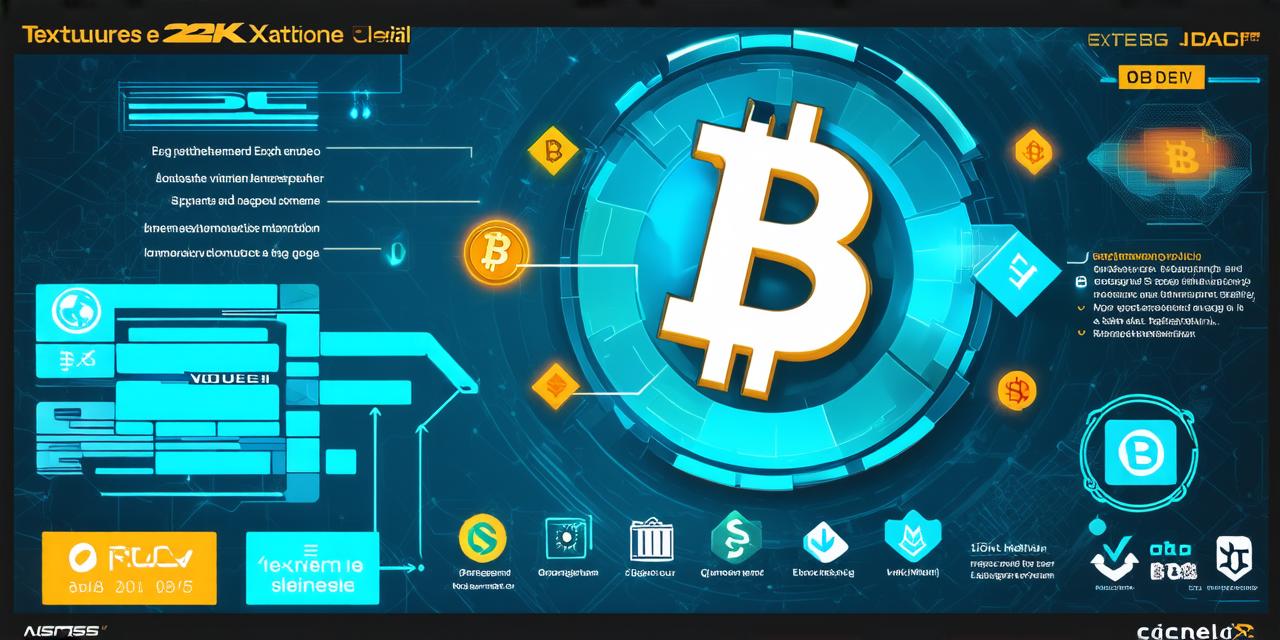What is Blockchain Technology?
Blockchain technology is a distributed ledger that records transactions across multiple computers. It was originally developed to facilitate secure and transparent financial transactions, but its potential applications go far beyond that.
How does Blockchain Technology Work?
Blockchain technology uses consensus algorithms to validate transactions and add them to the ledger. In a consensus algorithm, multiple nodes or computers work together to verify the transaction and ensure it is valid before adding it to the blockchain. This makes it difficult for any single entity to manipulate the data on the network.
Benefits of Blockchain Technology
There are many potential benefits of using blockchain technology in different industries, including:
- Transparency: Blockchain technology allows for the creation of immutable records that cannot be altered or deleted, providing transparency to all parties involved.
- Security: The decentralized nature of blockchain technology makes it more resistant to hacking and other forms of cyber attacks.
- Efficiency: Traditional databases can be slow and inefficient, but blockchains can process transactions quickly and securely.
- Reduced costs: By eliminating intermediaries, blockchain technology can reduce the cost of transactions and increase efficiency.
- Improved accessibility: Blockchain technology can make it easier for people who do not have access to traditional banking systems to participate in financial transactions.
Challenges of Blockchain Technology
Despite its many potential benefits, blockchain technology also faces several challenges, including:
- Scalability: Current blockchain technologies can only handle a limited number of transactions per second, making them unsuitable for high-volume applications.
- Regulation: Blockchain technology is still in its early stages, and governments and regulatory bodies are grappling with how to regulate it.
- Security: While blockchain technology is secure, it is not immune to attacks, and there have been several high-profile hacks of blockchain networks.
- Complexity: Blockchain technology can be complex and difficult for non-technical users to understand.
Real-Life Examples of Blockchain Technology
There are many real-life examples of blockchain technology being used in different industries, including:
- Bitcoin: The most well-known example of a blockchain-based cryptocurrency.
- Ethereum: A blockchain platform that enables the creation of decentralized applications (dApps) and smart contracts.
- Hyperledger: An open-source blockchain framework for enterprise use, designed to provide scalability and privacy.
- IBM Food Trust: A blockchain network that allows food companies to trace the origin of their products, improving food safety and reducing waste.
- MediLedger: A blockchain-based system for tracking prescription drugs, helping to prevent counterfeit medications from entering the supply chain.
FAQs
1. What is a blockchain?
A blockchain is a distributed ledger that records transactions across multiple computers.
2. How does blockchain technology work?
Blockchain technology uses consensus algorithms to validate transactions and add them to the ledger. In a consensus algorithm, multiple nodes or computers work together to verify the transaction and ensure it is valid before adding it to the blockchain. This makes it difficult for any single entity to manipulate the data on the network.
3. What are some real-life examples of blockchain technology?
Some real-life examples include Bitcoin, Ethereum, Hyperledger, IBM Food Trust, and MediLedger.
4. What are the benefits of using blockchain technology?
Some potential benefits include transparency, security, efficiency, reduced costs, and improved accessibility.
5. What are some challenges of using blockchain technology?
Some challenges include scalability, regulation, security, complexity, and interoperability.

Summary
Blockchain technology is a powerful tool that has the potential to revolutionize many industries. While there are still challenges to overcome, the benefits of this decentralized, secure, and transparent way of storing and sharing data make it an exciting area for future development. As blockchain technology continues to evolve, we can expect to see even more innovative applications and use cases emerge.
